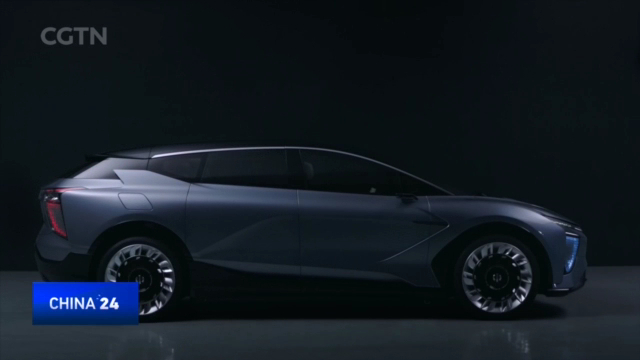
21:31, 29-Aug-2019
World AI Conference: China's smart car sector: Here comes Tesla
Updated
21:39, 29-Aug-2019

As Chinese-made Teslas are supposed to roll out of its super factory in Shanghai this year, challenges are expected to arise for the fledgling smart car industry in China. CGTN's Yang chengxi reports.
China is one of the world's largest car markets. In recent years, new car brands in China are making electric vehicles that aim to rival Tesla. Without exception, they all claim they can improve user experiences with AI-enabled autonomous driving.
DANIEL KIRCHERT CEO, BYTON "Even in a normal driving scenario it generates some great experience. But if you think about autonomous scenario or semi-autonomous scenario, that will be amazing."
China aims to be one of the most supportive places for new generation high-tech vehicles. The launch and operation of Tesla's wholly-owned super factory in Shanghai has gone more smoothly than many had expected. Subsidies for new energy cars, albeit much lower now than in previous years according to reports, have also supported these companies. Each has their own understandings of autonomous driving.
DING LEI, FOUNDER HUMAN HORIZONS "We should not put all of our resources into the vehicle. We should share the engineering resource and tech resource from the vehicle to the road. For example, if we have a computing system, a sensor system on the road, then these systems can take care of the car passing through."
Experts say that will require motivation from local authorities in building smart infrastructures. Chinese brands Byton and Human Horizon both say they are cooperating with local governments in testing self-driving on roads. But the market will become more challenging for them as Tesla is now gaining a stronger presence in China than ever before, with its Shanghai factory planning to produce its Model 3 cars starting in the fourth quarter of this year. YCX, CGTN, SHANGHAI.
SITEMAP
Copyright © 2018 CGTN. Beijing ICP prepared NO.16065310-3
Copyright © 2018 CGTN. Beijing ICP prepared NO.16065310-3